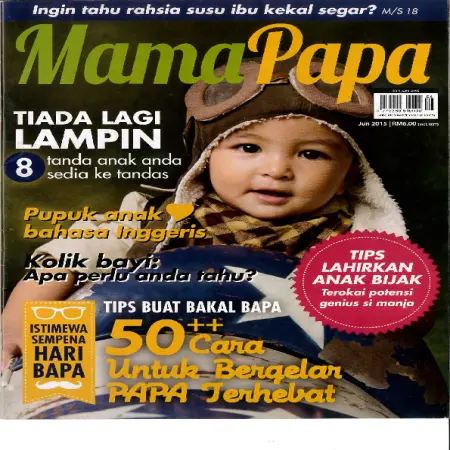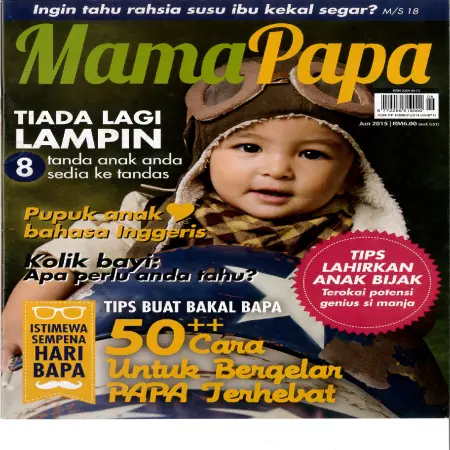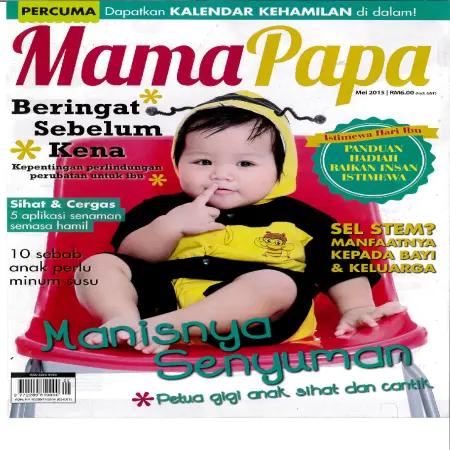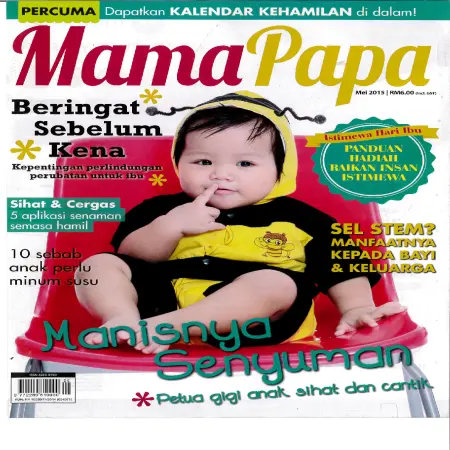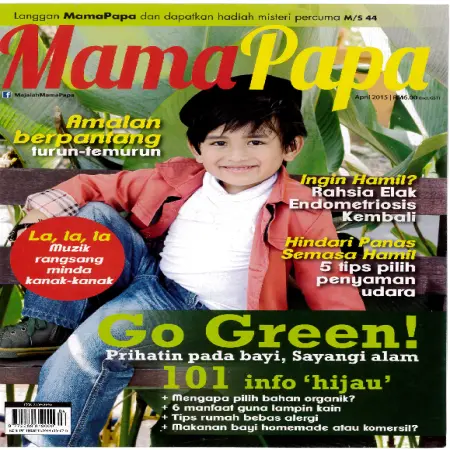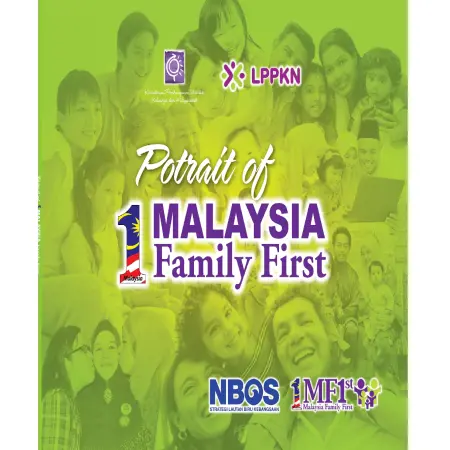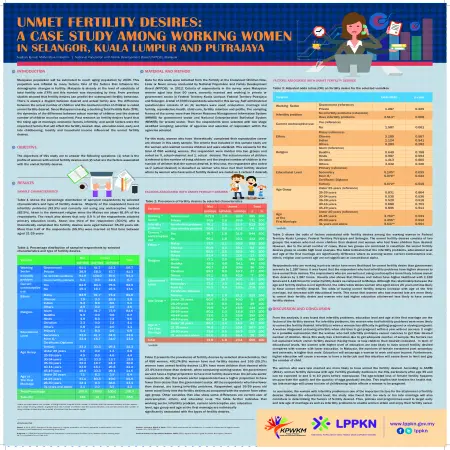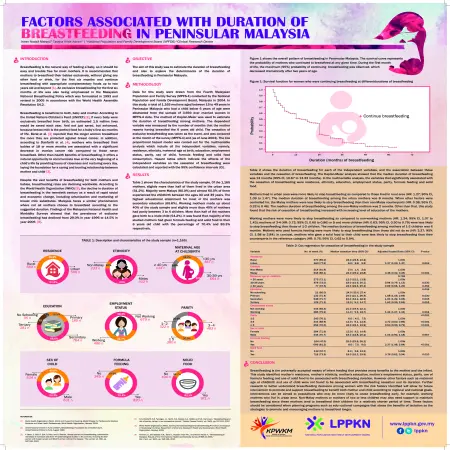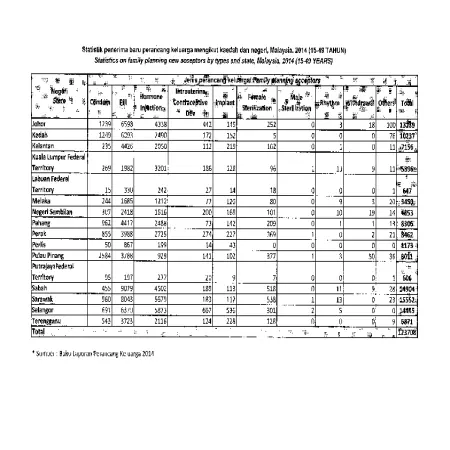Advanced Search
|
10 tips luangkan masa berkualiti bersama keluarga
Item Type: Article
Year: 2015
Abstract: Quality time with family is when family members can spend time with mutual benefits. The time is filled with activities or interactions that can further strengthen the relationship between family members. This article shares about 10 tips to spend quality time with family such as,...[Read More]
|
|
|
|
|
|
Toleh kiri dan toleh kanan
Item Type: Article
Year: 2015
Abstract: The aspect of safety in the family needs to be educated and made a daily practice and needs to be educated with patience without despair. There are some simple tips to practice in family safety such as don’t stop praying, keep dangerous and important equipment in a special place, safe...[Read More]
|
|
|
|
|
|
Imbangi keluarga dan kerjaya
Item Type: Article
Year: 2015
Abstract: Based on the Fourth Malaysian Population and Family Survey (MPFS-4), it was found that overall, mothers do more leisure activities with their children, especially children under seven years old. This study found that the percentage of parents who often spend special time with their...[Read More]
|
|
|
|
|
|
Apa wanita perlu tahu: subur@tidak subur?
Item Type: Article
Year: 2015
Abstract: Fertility is the ability to conceive naturally. As a measure, fertility rate is the number of children born per individual, household or population. Fertility varies according to fertility, i.e. the potential to reproduce (which is influenced by gamete production, fertilization and the...[Read More]
|
|
|
|
|
|
Selamatkah mainan anak anda?
Item Type: Article
Year: 2015
Abstract: Children's toy can help the educational and developmental process of children at an early age. However, the selection of children's toys needs to be done wisely especially if it involves safety aspects. If parents do not carefully choose toys, it can invite danger to the safety of...[Read More]
|
|
|
|
|
|
Portrait of 1Malaysia Family First (1MFF)
Item Type: Book
Year: 2015
Abstract: The 1MFF movement is a national agenda to increase commitment and invite all levels of society to return to giving priority to the family institution in all efforts, planning and actions. It is hoped that the 1Malaysia Family First (1MFF) element will create a lasting bond of love in...[Read More]
|
|
|
|
|
|
Unmet fertility desires: a case study among working women in Selangor, Kuala Lumpur and Putrajaya
Item Type: Scientific Poster
Year: 2015
Abstract: Malaysia population will be estimated to reach aging population by 2035. This projection was inflated by many factors. One of the factors that influence the demographic changes is fertility. Malaysia is already at the level of substitute of total fertility rate (TFR) and this number...[Read More]
|
|
|
|
|
|
Factors associated with duration of breastfeeding in Peninsular Malaysia
Item Type: Scientific Poster
Year: 2015
Abstract: Breastfeeding is the natural way of feeding a baby, so it should be easy and trouble free for most mothers. It is recommended that mothers to breastfeed their babies exclusively, without giving any other food or drink, for the first six months and continue breastfeeding with...[Read More]
|
|
|
|
|
|
Sosialisasi dan kawalan sosial dalam kehidupan remaja berisiko: kajian kes di projek Perumahan Rakyat (PPR) Sri Pahang, Bangsar dan Sri Pantai, Lembah Pantai, Kuala Lumpur
Item Type: Thesis
Year: 2015
Abstract: This study focused on a group of adolescents categorized as adolescents at risk in the People's Housing Project (PPR) area in urban areas. Purpose of the study is to identify and understand the life patterns of at -risk adolescents includes their involvement in deviant behavior, the...[Read More]
|
|
|
|
|





